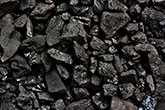UPDATE: power plant explosion in Kosovo
Three people died in the explosion at the Kosovo A power plant in the Bakan country’s capital city, Pristina, on Friday.
The power plant, dubbed the worst polluter in Europe by the World Bank produces almost half of Kosovo’s electricity. The country has regularly suffered blackouts in the fifteen years since breaking free of Serbia during the collapse of federal Yugoslavia.
A former Kosovo Energy Corp. worker, who once worked at the Kosovo A plant, said that accidents in the country’s coal sector were far from uncommon: “In an old establishment such as this plant, expecting that such accidents won’t happen would be a mistake,” Nazie Sinani said.
Speaking in the aftermath of the explosion, an injured engineer who escaped the blast told local media: "The explosion was so strong that I thought it was an earthquake. The ceiling started to fall. Before I left the plant I noticed many wounded and much blood.”
Outgoing Prime Minister Hashim Thaci, who visited the plant shortly after the blast, told reporters that there was no risk of further explosions.
Kosovo's main political parties suspended their campaign rallies planned for Friday ahead of Sunday's parliamentary elections.
World Bank financial aid
Before the deadly explosion occurred, Kosovo’s government had submitted a proposal to the World Bank to help finance a new power plant that would provide a reliable power supply while still tapping the nation’s lignite reserves, the world’s fifth largest.
“We’re going to avoid coal except in the most exceptional circumstances, and in this case, it is one of the exceptional circumstances,” World Bank President Jim Yong Kim said in an interview on 30 May. “It’s a dilemma, not just as the World Bank – it’s a dilemma all over the world.”
The Kosovo project – a two-unit, 600 MW plant that would be fed coal from nearby state-owned mines – is estimated by the government to cost less than US$ 1.4 billion. It would be built with private funds and sit next to the Kosovo B plant, which dates back to the 1980s and is itself in urgent need of upgrades.
The country has “obsolete technologies which are highly polluting and are not sufficient to meet even the basic demands for growth and development of the economy,” Ellen Goldstein, the World Bank’s country director for Southeast Europe, Europe and Central Asia, said in a phone interview.
Edited from various sources by Sam Dodson
Read the article online at: https://www.worldcoal.com/power/09062014/update_power_plant_explosion_in_kosovo_953/
You might also like
Met coal’s biggest exporter wants to get even bigger
Simon Nicholas, Lead Analyst – Global Steel at IEEFA, comments on BHP’s takeover bid for Anglo American and its potential implications for the steel and coal industries.


